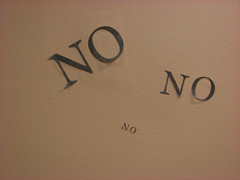Monday, January 31, 2011
Squirrelly Grace
I wasn't really paying that much attention to him, just casually noticed him out of the corner of my eye. I kept walking down the sidewalk, closer to the point where this fence line and tree met up, and the squirrel was doing the same.
As it happened, I arrived at that junction about the same time as the squirrel did and it finally occurred to me that this squirrel was going to be jumping over my head to the tree and because it was so close to running into me, I suddenly jerked my head to see what he was doing.
I think the sudden jerk of my head frightened the squirrel and this happened right at the moment he was jumping. As a result, he missed his timing or cut short his jump or something, but the end result was almost cartoon-like. You remember how the Coyote would be chasing the Road Runner (or Elmer Fudd chasing Bugs Bunny) and he would accidentally run off a cliff and his feet would keep spinning for a while until it occurred to him he had run off a cliff, and then he'd stop running and stand there in mid-air with a sad look of realization on his face, and then finally, he'd fall?
That's what this squirrel did.
His little feet spun in the air several inches short of the branch he was jumping for and then, well, he just grace-lessly fell to the sidewalk.
I guess all in nature is not always smooth and graceful.
=======
Addendum:
In other, tragic rodent-related news, the frozen carcass of Punxsutawney Phil was uncovered today as the crowd awaited his appearance for Groundhog Day.
"This does NOT bode well for spring," the mayor was heard to say over the howling blizzard-condition winds...
Friday, January 21, 2011
A Prayer for Warmth
The difference between 92 degrees and 72 is the difference between hot and comfortable, fair enough. But find a place in the shade with a cool breeze and 92 is not usually impossibly unbearable.
The difference between 72 and 52 is even less a difference - the difference between pleasant and slightly cool. No big deal. Put an extra shirt or jacket on.
The difference between 52 and 32 is still not that great. Sure, you need to put on a jacket and an extra layer or two and you'll be okay.
But, the difference between 32 degrees and 12 degrees - 20 degrees below freezing - is a huge difference. You move from merely cold to literally freezing. Your hands stiffen and turn dry and red. Your cheeks sting and you can tell immediately if you don't have enough socks on your feet. This is the sort of cold that hurts.
However, walking half an hour or an hour through this sort of weather is not unbearable, IF you're prepared for it. Today is one of those days. I wore three layers of shirts and three layers of jackets. I had a cap on my head and extra longjohns and socks on to keep my legs and feet warm. Thus prepared, it's just a slightly brisk walk - and that, from a heated home to a heated office. Not that big of a deal.
Having said that, every day on my way to work, I walk past my homeless brothers and sisters. I pass by the mental health agency where shivering, marginalized souls suffer outside the doors, waiting for the office to open. I pass by the folk who stay at the homeless shelters as well as the homeless who camp out.
I see their suffering, dry skin and frozen noses and know that there is a world of difference in twenty degrees. I recognize the huge difference in taking a short-lived walk from warm building to warm building and in standing - just standing - waiting in the bitter cold. Waiting for a chance to get in some place warm and welcoming (hard to come by, that). Waiting for warmer weather, which is MONTHS away, not minutes.
Wondering if you'll live to see Spring's thaw again.
So today, I lift up a prayer for our homeless friends, to our mentally ill friends, to all those out suffering especially on these coldest days. I lift up a prayer of thanks for Diane, for Donna, for Sally's and VOA and Jeff Street and all those places and people who offer a warm cup of coffee and an open door into a warm respite.
"For I was cold, and you offered me a jacket and a warm place to stay."
Amen.
Thursday, January 20, 2011
So, What Are You Proposing?
My answer is that I would not want anyone to surrender any righteous, non-harmful action they might feel led to, any more than I would want to surrender my option to take action on my beliefs.
I simply want to remind myself and all of us to do so in love and humility, recognizing that, even though we may be "100% certain" or only "nearly totally positive," we could still be mistaken.
Further, I'd like us all to have sort of a sliding scale of rigidity and seriousness over topics of disagreement based upon how closely or not they are to Jesus' actual teachings and real world ramifications.
Someone wants to argue that Mary had ten children after Jesus and someone else wants to argue that Mary had NO children after Jesus? No big deal. Don't sweat it.
There's not much impact there one way or the other and Jesus never says specifically that Mary had X number of children so enjoy a discussion on the topic if you'd like, but keep perspective. Slide the scale back many notches on "debating" that pretty insignificant issue.
Someone wants to argue that drinking alcohol is always wrong and another wants to debate that it's acceptable in moderation? No big deal. Jesus did not stake out a position on drinking alcohol and there is no real harm done either way.
Someone wants to argue against the Triune nature of God and someone else wants to argue in favor of it? Well, Jesus did not stake out an opinion and I can't see a huge amount of harm done either way (depending I guess on how those arguments went). Disagree if you wish, but don't get up in a sweat about it. Don't denounce the Other as non-Christian or false teacher over something that Jesus did not teach and that likely has not serious ramifications (and to be clear: I DO believe in the Triune nature of God, before anyone misses the point... I probably shouldn't use that as an example!).
On the other hand, someone wants to teach that we are to HATE our enemies and kill off their children? Well, that is:
1. directly contradicting something that Jesus said AND
2. it has horrifying consequences.
That's a profound argument worth debating vigorously.
Someone wants to teach that we are saved NOT by grace, but by following rules set up by Jim Jones or someone else? That's a profound disagreement with serious consequences. Worth debating vigorously.
My point is that most things that people want to denounce others as "non-Christian" and "false teacher" about are not even direct teachings of Jesus and don't have overtly serious consequences.
On THOSE points, we all ought to lighten up, is what I'm saying, and remember not to argue about mere words or human commands.
The question was also asked, "If we both might be wrong, why not acquiesce to ME, rather than go with your hunch? Why not, for instance, just NOT support gay marriage, since I might be right about it?"
First off, just because we BOTH could be wrong does not mean that I think both our arguments are equally valid. I obviously think my view is the most reasonable or I would not hold it.
Beyond that, why would I support legalizing and oppose criminalizing marriage? Because of the harm and oppression involved in the criminalization. It's a human rights issue and I think Christians should be in the forefront of working for human rights and against oppression.
If a church does not approve of gay marriage then, while it saddens me, so be it. Don't marry any gay folk. Turn seekers away from the door if they wish. No harm (well, some... depending on how foul they are about it), no foul. I'll disagree with them and move on.
BUT, if they want to criminalize two adults getting married (gay/straight/black/white/whatever), THEN they have moved over into harmful territory, impinging on others' rights. That is where I think is a reasonable place to draw the line.
I don't think AT ALL that recognizing our fallibility and lack of perfect understanding means we do nothing. You don't see ME doing nothing, do you? I engage in conversations. I support and oppose legislation. I choose where and how I shop, live, spend my money, donate, etc. We can do just about anything. Anything Good. Anything Pure. Anything Just.
Anything BUT oppress, cause deliberate harm to others, lie, slander, gossip, kill, torture.
First, Do no harm.
Do you disagree with a behavior? Don't support that behavior. Do you think abortions are wrong? Don't have one. Do you think war is wrong? Don't go to war. Do you think gay marriage is wrong? Don't get married to someone of the same gender!
Do you think a loved one is wrong for getting married to a gay (black, Muslim, Jewish, Fundamentalist) guy/gal? Then speak to them in love about it if you really feel you must. But do so with grace and humility.
But, keep in mind: When it comes to telling others that their non-harmful behavior (non-harmful as far as we can see) is wrong, though, most adults need to reach their own conclusions and talking down to them, telling them they're not Christian, they're a "false teacher," they're going to hell for disagreeing with you, etc, will seldom win converts, so it's not especially helpful if winning them over is your goal.
Simply stick to, "I am concerned because it seems to me that..." and lay out your case with love AND being willing to listen to their side, as well.
That's what I think we should do.
Which is a lot, seems to me.
Monday, January 17, 2011
False False Teacher Teachings: Conclusion
The points on which those who commented appeared to agree were...
We can recognize false prophets...
1. By their actions - by lives that are NOT full of grace, love, purity, self-control, kindness, gentleness, concern for the poor, etc, who instead, engage in slander and gossip and are greedy and who sexually act out (with greed being a primary cause for their preaching false teachings; that is, they preach false doctrine knowingly in order to get money).
2. by their being deliberate in their false doctrine, not speaking of those who are merely mistaken in sincerity, but blatantly lying.
3. By denying Jesus was sent of God, is the Son of God, divine.
4. By teachings that deny Jesus' teachings.
5. By teachings that deny Jesus' literal humanity.
6. By the weight of impact of their false teaching - if they are driving people from Christianity, for instance, or are teaching doctrine that would result in damnation (ie, teaching we are NOT saved by grace through faith in Jesus, or adding human rules to the "hoops" one has to jump through in order to be saved).
7. They "quarrel about words" and "promote controversial speculations" and "have an unhealthy interest in controversies and quarrels about words that result in envy, strife, malicious talk, evil suspicions and constant friction..." There seems to be something pretty specifically in mind when this repeated warning about quarrels, I just can't see that it's clear exactly what. Does anyone have more insight into this aspect?
8. By being intimately aware of the situation/people under consideration. In the instances in the Bible, it always seems as if the writer is speaking of some situation/person wherein the writer is well familiar with the people and the situation. This, as opposed to commenting on some random blogger/writer/speaker where you've heard a few excerpts of their writing/teaching.
9. By being an actual teacher in some venue, as opposed to some guy just espousing opinions (this one is rather vaguely defined, but perhaps worth consideration).
These are the things that it seemed most of the folk who were participating seemed to mostly agree upon.
Of those who I've met online who most use the term "false teacher," we had the least amount of support for their tendency to use the term. As we can see from those who DID offer opinions who tend to disagree with me and mine, they are offering opinions of the term not supported in the biblical text.
For the most part, those who disagree with my general gist here continue to hold to the "it's obvious" criteria for such disagreements. That is, they allow that on some topics there ARE some dudes we just disagree with and that it's okay on those topics, it's not as if they're false teachers simply because they disagree with me.
But then, the reasoning goes, on other topics, it's NOT okay to disagree with their take on a particular theme or passage because "it's obvious," and anyone who disagrees with this "obvious" teaching must be a false teacher. This is without regard to intent (ie, someone who is honestly mistaken) or, apparently for some, they think IF they teach differently than what I think on this topic, then they MUST be lying and intentionally misleading because, well, it's obvious.
Further, for these folk, by THEIR loose and whimsical definition/usage of the term "false teacher," nearly everyone becomes a false teacher. In other words, if I truly think Mr X is mistaken on a topic, AND it turns out that Mr X WAS mistaken on that topic, then he WAS a false teacher, regardless of intent. There is no grace here for human fallibility, it seems to me.
Anyone who is a teacher who mistakenly holds a wrong position on certain topics (loosely and undefined topics, vague as to the point of meaninglessness) IS a false teacher and will be held to a higher level of accountability.
According to some.
I think the biblical witness is pretty clear that intent is important.
Monday, January 10, 2011
False False Teacher Teachings 2
As I urged you when I went into Macedonia, stay there in Ephesus so that you may command certain people not to teach false doctrines any longer or to devote themselves to myths and endless genealogies. Such things promote controversial speculations rather than advancing God’s work—which is by faith. The goal of this command is love, which comes from a pure heart and a good conscience and a sincere faith.
Some have departed from these and have turned to meaningless talk. They want to be teachers of the law, but they do not know what they are talking about or what they so confidently affirm.
~1 Tim 1
What is Paul warning of there? What is the false teaching being spoken of? It's not exactly clear, but we can read that the teachings described are not coming from a pure heart of love and a sincere faith, so maybe that helps.
Also, there is the reference to those who "promote controversial speculations" instead of "advancing God's work."
If anyone teaches otherwise and does not agree to the sound instruction of our Lord Jesus Christ and to godly teaching, they are conceited and understand nothing. They have an unhealthy interest in controversies and quarrels about words that result in envy, strife, malicious talk, evil suspicions and constant friction between people of corrupt mind, who have been robbed of the truth and who think that godliness is a means to financial gain.
~1 Tim 6
False teachers, Paul tells us, are those who do not agree with the sound teaching of Jesus and "godly" teaching (left undefined, but we probably generally share a good notion of at least some godly teachings, things like the fruit of the Spirit, perhaps?)
They also have an unhealthy interest in controversies and quarrels that lead to malicious talk and evil suspicions, for what it's worth.
Remember Jesus Christ, raised from the dead, descended from David. This is my gospel...
If we died with him,
we will also live with him;
if we endure,
we will also reign with him.
If we disown him,
he will also disown us;
if we are faithless,
he remains faithful,
for he cannot disown himself
Keep reminding God’s people of these things. Warn them before God against quarreling about words; it is of no value, and only ruins those who listen. Do your best to present yourself to God as one approved, a worker who does not need to be ashamed and who correctly handles the word of truth. Avoid godless chatter, because those who indulge in it will become more and more ungodly. Their teaching will spread like gangrene. Among them are Hymenaeus and Philetus, who have departed from the truth. They say that the resurrection has already taken place, and they destroy the faith of some.
~2 Tim 2
Here Paul lists avoiding godless chatter, quarreling about words, and not believing in Jesus' death and resurrection.
They will secretly introduce destructive heresies, even denying the sovereign Lord who bought them—bringing swift destruction on themselves. Many will follow their depraved conduct and will bring the way of truth into disrepute. In their greed these teachers will exploit you with fabricated stories. Their condemnation has long been hanging over them, and their destruction has not been sleeping.
Bold and arrogant, they are not afraid to heap abuse on celestial beings; yet even angels, although they are stronger and more powerful, do not heap abuse on such beings when bringing judgment on them from the Lord. But these people blaspheme in matters they do not understand...
Their idea of pleasure is to carouse in broad daylight. They are blots and blemishes, reveling in their pleasures while they feast with you.With eyes full of adultery, they never stop sinning; they seduce the unstable; they are experts in greed—an accursed brood! They have left the straight way and wandered off to follow the way of Balaam son of Bezer, who loved the wages of wickedness...
For they mouth empty, boastful words and, by appealing to the lustful desires of the flesh, they entice people who are just escaping from those who live in error. They promise them freedom, while they themselves are slaves of depravity—for “people are slaves to whatever has mastered them.”
~2 Peter 2
In that passage, we find a goodly numberr of more specific traits of false teachers.
1. "carousing/eyes full of adultery..." some sort of sexual sin, it would appear
2. "Experts in Greed" - those who chase after money
3. "Denying the sovereign Lord who bought them," denying Jesus as the son of God, perhaps?
4. "Not afraid to heap abuse on celestial beings..." Bold and arrogant
5. In Coffman's commentary, he notes the "fabricated stories" or "feigned words" indicates those who'd deliberately teach false doctrine, not the merely deluded.
More from Coffman...
This includes reviling "magistrates," (celestial beings) as Macknight said, but much more is meant. It is a loudmouthed, blasphemous declamation against all that is high, honorable, or holy. Authority of any or all kinds is anathema to this class.
Continuing...
For there are many rebellious people, full of meaningless talk and deception, especially those of the circumcision group. They must be silenced, because they are disrupting whole households by teaching things they ought not to teach—and that for the sake of dishonest gain.
One of Crete’s own prophets has said it: “Cretans are always liars, evil brutes, lazy gluttons.” This saying is true. Therefore rebuke them sharply, so that they will be sound in the faith and will pay no attention to Jewish myths or to the merely human commands of those who reject the truth...
They claim to know God, but by their actions they deny him. They are detestable, disobedient and unfit for doing anything good.
~Titus 1
Again, Greed is a telling characteristic of false teachers. Also "meaningless talk" and deception. We also have those here, it appears to me, who are adding to grace, by demanding IN ADDITION to being saved by grace, we also have to be circumcised.
Additionally, we have the suggestion that false teachers are liars (indicating deliberate deception - and with apologies to any decent Cretans out there...) who embrace "jewish myths" and "mere HUMAN commands."
“Beware of the false prophets, who come to you in sheep’s clothing, but inwardly are ravenous wolves. “You will know them by their fruits.
~Matt 7
That's Jesus weighing in on the topic, stating clearly that we will know them by their fruits, by their ill-behavior.
Dear friends, do not believe every spirit, but test the spirits to see whether they are from God, because many false prophets have gone out into the world. This is how you can recognize the Spirit of God: Every spirit that acknowledges that Jesus Christ has come in the flesh is from God, but every spirit that does not acknowledge Jesus is not from God...
Dear friends, let us love one another, for love comes from God. Everyone who loves has been born of God and knows God. Whoever does not love does not know God, because God is love...
God is love. Whoever lives in love lives in God, and God in them...
Whoever claims to love God yet hates a brother or sister is a liar.
~1 John 4
John stating the familiar theme of knowing false prophets by their denying that Jesus was the son of God (probably referring to gnostics, who denied Jesus had an actual earthly body) and the evidence of love, for Love is from God and "EVERYONE who loves has been born of God," quite the astounding statement.
For if someone comes to you and preaches a Jesus other than the Jesus we preached, or if you receive a different spirit from the Spirit you received, or a different gospel from the one you accepted, you put up with it easily enough.
For such men are false apostles, deceitful workers, disguising themselves as apostles of Christ. And no wonder, for even Satan disguises himself as an angel of light. Therefore it is not surprising if his servants also disguise themselves as servants of righteousness...
~2 Cor 11
So...
It appears to me that false teachers can be recognized
1. By their actions - by lives that are not full of grace, love, purity, self-control, kindness, gentleness, who slander and gossip and are greedy and who sexually act out.
2. by their being deliberate in their false doctrine, not speaking of those who are merely mistaken in sincerity, but blatantly lying.
3. By denying Jesus was sent of God.
4. By teachings that deny Jesus' teachings.
5. By teachings that deny Jesus' literal humanity.
For your consideration...
Jesus knew their thoughts and said to them, “Every kingdom divided against itself will be ruined, and every city or household divided against itself will not stand. If Satan drives out Satan, he is divided against himself. How then can his kingdom stand? And if I drive out demons by Beelzebul, by whom do your people drive them out? So then, they will be your judges. But if it is by the Spirit of God that I drive out demons, then the kingdom of God has come upon you.
“Or again, how can anyone enter a strong man’s house and carry off his possessions unless he first ties up the strong man? Then he can plunder his house.
“Whoever is not with me is against me, and whoever does not gather with me scatters. And so I tell you, every kind of sin and slander can be forgiven, but blasphemy against the Spirit will not be forgiven. Anyone who speaks a word against the Son of Man will be forgiven, but anyone who speaks against the Holy Spirit will not be forgiven, either in this age or in the age to come.
“Make a tree good and its fruit will be good, or make a tree bad and its fruit will be bad, for a tree is recognized by its fruit. You brood of vipers, how can you who are evil say anything good?
~Matt 12
So, here again, we see the measure of "good fruit," of those who live good lives, as being evidence AGAINST the "false teacher" charge. And it comes with the warning: "YOU BROOD OF VIPERS, how can you who are evil say anything good..." and "Anyone who speaks against the Holy Spirit will not be forgiven."
owch. So, I would say that, while it is true it is very wrong to be a false teacher - one according to the Bible who deliberately teaches wrong teachings - but it is equally true, it seems to me, to be VERY wrong to falsely accuse someone of God to be a false teacher.
It seems that those who are false teachers can be forgiven and brought back into the family of God, but those who falsely ACCUSE of false teaching, it sounds like they can't be!
Sunday, January 9, 2011
False False Teacher Teachings?
We all know some of the bloggers who engage in the whole "false teacher" gunslinging abuse, and I'm sure we all know some beyond the "regulars."
I recently met a new gunslinger and he had this to say (going from memory, as he decided to delete the record of our discussion so as not to "pollute" his blog with my "false teaching")...
I agree with you that we don't have perfect knowledge, nor are we required to know everything perfectly in order to be saved...
So far, so good...
But, I'm NOT wrong on this point. I CAN NOT be wrong because I'm just telling you what God has said in the Bible.
Wow. So, he "knows" he CAN'T be mistaken on some point (gay marriage, in this case, natch) and he "knows" that I am a false teacher because I disagree with him on that point.
And when I suggested that this might be a bit on the arrogant and presumptive side ("I CAN NOT BE WRONG") for someone who agrees he's a fallible human, he starts deleting things in a snit.
Which got me to thinking about the whole "false teacher" rigamarole. Do these gunslingers really understand what the bible has to say about false teachers? What DOES the Bible have to say about them? What is the difference between a false teacher and some dude that just disagrees with me? Do the gunslingers have any objective measure for this or is it entirely whimsical and subjective, as it seems to be to me?
These are the questions I have tried asking here lately, with no good results. So I'm asking here.
(As to this latest gunslinger, I'll leave him anonymous, along with the other slingers - my point is not to point out how awful or stupid any one person is, I'm wanting to talk about the IDEAS they represent, not the people promoting them - although I actually would hope that maybe some of them might make their way here and see fit to comment)
So, how about it? What objective measure IS there for the charge of "false teacher" for those who regularly use it? I've seen them occasionally disagree with one of their comrades without resorting to calling THEM false teachers, so obviously, it's not simply a matter of "those who disagree with me are false teachers." But, what, then?
A false teacher is recognizable because... what?
And should any one respond to this question, I hope it's not simply them saying, "One who disagrees with God's teachings is a false teacher," because that is entirely subjective. When they say that (and that's what they usually say) what they are ACTUALLY saying is "One who disagrees with MY UNDERSTANDING of God's teachings is a false teacher," and when you point that out, they seem to drop back to "No, not MY UNDERSTANDING, but God's actual teaching, and I KNOW the right way to take that teaching because it is 'obvious...'"
And when you ask, "Obvious to WHO?" well, then they get in a snit, call you a false teacher and delete your comments.
But I would hope that some of these fellas and gals (usually fellas, but there's some gals, too) would give it some thought and offer a response.
Tuesday, January 4, 2011
Intro to the Sermon on the Mount
This year, Roger prepared an introduction to the Sermon, to give us some context. This, too, I thought was very cool, and so I present it here (cross-posted at the Jeff Street Baptist blog) for your consideration.
Palestine in the time of Jesus was difficult. Galilee, Samaria, Judea and the rest of the eastern Mediterranean region was under the occupation of the Roman Empire. Luke’s birth narrative begins with, “In the days of Caesar Augustus…” and Caesar Augustus was the first full-blown emperor of Rome. Rome had been a republic until Julius Caesar seized control and began the transition away from more democratic principles toward empire. His nephew, Octavius, inherited his power, took the name Caesar Augustus, and consolidated Rome’s position as an empire. Not only did Caesar Augustus consolidate political power, but he began to consolidate religious power as well. The expectation was for the conquered lands to worship the divine Caesar as a god.
This proved to be a problem for the Jews. Whereas most of the Mediterranean world already believed in many gods and had little difficulty assimilating Caesar in as another god to be worshipped, it was not the same for the Jews. The Jews believed there was but one true God, the creator and master of the universe. “Hear, O Israel, the Lord our God is one and you shall love the Lord your God with all your heart, and with all your soul, and with all your might.”
There was no way they could worship God and worship Caesar. Fortunately, because this was their religion when Rome took control, they weren’t forced to sacrifice at the altars to Caesar Augustus, but they were expected to capitulate to the political and social expectations of the empire.
But even this was too much for the Jews. “How can we, the chosen people of God, live in this unacceptable situation? Why are we again under the rule of the pagan gentiles? Didn’t we have our own rulers and our own temple? What has gone wrong?”
There were four significant points of view on this question in the days of Jesus. The zealots wanted to rise up like the Maccabees and violently drive Rome from the Promised Land. “It’s our land and we’ll kill the Romans and their lackeys to keep it.”
The Sadducees and Herodians urged the people to go along to get along with the rule of the empire. “If we rise up we’ll be destroyed. We must work together.” The Sadducees and Herodians had a credibility problem with the people, though, because as collaborators with Rome they became rich oppressors themselves.
The Pharisees viewed Roman rule as punishment from God for the people’s sin. “If we would only purify ourselves and truly become God’s holy people, then God will send his Messiah to lead us to victory against God’s enemies.” They were pretty serious about this, too, developing over 600 specific rules to make sure they were pure in the sight of God. This approach left little room for error and as a result the Pharisees tended to be a tad judgmental and intolerant toward those who didn’t follow their rules just so.
The Esseenes said, “All y’all are crazy and don’t get it” and they withdrew from society into the wilderness and refused to trouble themselves with earthly concerns and conflicts.
And in the region of Galilee from the town of Nazareth, Jesus, a carpenter turned rabbi, began a ministry of healing and of signs and wonders that the people had not seen before. And he had a message that put him at odds with everyone.
The zealots liked the way he exposed the hypocrisy of the Sadducees and the Pharisees, but he also said, “Do not take revenge against the evil doer” and “Love your enemies, too, like God does.”
The Sadducees liked Jesus’ words of blessing to the poor people of the land, but when he enjoined them to stand up to those who backhand you and turn the other check to make them treat you like an equal or to stand naked before the judge and expose the economic injustice of the system or to turn the tables on Roman law by refusing to give a Roman soldier back his backpack after he has forced you to carry it for a mile – why, that just rocks the boat too much!
The Pharisees liked many of the themes of Jesus’ teaching – almsgiving, praying, and fasting, these were good, measurable acts of righteous in their eyes – but then he sums up the law with “Do unto others as you would have others do unto you,” and their 600 plus rules seem a bit silly and extreme.
The Esseenes could relate to the times Jesus withdrew to the mountains in solitude to pray, but then he always came back to the people and invited them to participate in the kingdom of God right now. And this participation was not based on how zealous or rich or pious or mystical one was. “It’s not even about calling me Lord,” Jesus said, “or prophesying, or casting out demons or performing miracles. That’s not how you know me and that’s not how you participate in the realm of God.” Instead it was based on recognizing the traps that pull us to sin and avoiding them. It was based on embracing God, not as the master of the universe, but as our Abba, our Daddy, and on carrying on the family business of reconciliation and love. It wasn’t about selfish prestige, or monetary gain, or being afraid and worrying about getting it right. It was based on simply treating others the way we’d like to be treated in return.
The Sermon on the Mount is the longest sermon of Jesus in the Gospels. Listen for these themes. Listen to how his message was heard by the zealots and the Sadducees, the Pharisees and the Esseenes. Listen to how his message was heard by his disciples and by the people of the land. And then listen to how his message sounds to you as you try to live your life with integrity in the empire today.
The Sermon on the Mount






